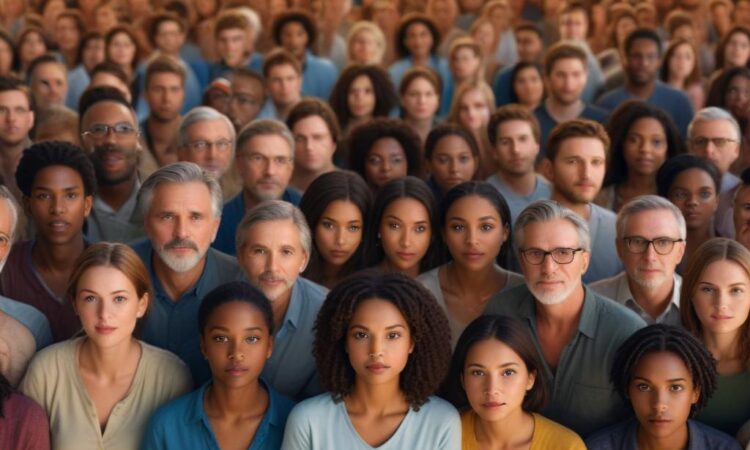Controversies and Debates: Examining the Latest Film Industry Issues
The film industry, once a bastion of escapism and entertainment, is now increasingly intertwined with societal anxieties and ethical considerations. From casting controversies to representation issues, the silver screen has become a reflection of the ongoing dialogues and debates surrounding our evolving world. This article dives deep into the latest controversies shaking up the film industry, exploring the complexities of casting choices, the fight for inclusive representation, and the ethical concerns that are prompting critical reflection within the art form itself.
Casting Choices: A Battleground for Representation and Authenticity
Casting choices have always been a subject of scrutiny, but in recent years, the debate has intensified. The focus has shifted from simply finding the \”best\” actor for a role to ensuring that diverse voices and experiences are accurately and respectfully portrayed on screen. The industry is facing a reckoning, challenged to move beyond tokenism and embrace a truly inclusive approach.
The Debate Over \”Race-bending\” and \”Whitewashing\”
One of the most contentious areas in casting debates is the practice of \”race-bending\” or \”whitewashing.\” \”Race-bending\” refers to casting actors of a different race than the character in the original source material, while \”whitewashing\” involves casting white actors in roles originally intended for people of color. These practices have been accused of erasing representation and perpetuating harmful stereotypes.
For example, the casting of Scarlett Johansson as the lead character in the live-action adaptation of \”Ghost in the Shell\” sparked widespread backlash. Critics argued that the casting of a white actress in a role originally written for a Japanese character was a blatant example of whitewashing and a failure to recognize the importance of authentic representation.
The Importance of Inclusivity and Representation
Beyond specific casting choices, the overall diversity of the film industry is a key area of concern. The lack of representation for marginalized groups on both sides of the camera has been a long-standing issue. Calls for greater diversity in casting, directing, and writing are growing louder, fueled by a recognition that representation matters and that audiences deserve to see themselves reflected on screen.
The industry is slowly responding to these calls for change. Initiatives such as the \”Inclusion Rider\” are being implemented to ensure that diverse voices are represented both on and off screen. However, the fight for true inclusivity remains an ongoing battle, with critics arguing that the industry needs to move beyond tokenism and embrace a genuine commitment to diversity.
Representation Issues: Challenging Stereotypes and Embracing Nuance
The issue of representation extends beyond casting and encompasses the portrayal of marginalized groups on screen. The way in which these groups are depicted has a profound impact on how they are perceived by the broader audience. Stereotypes and tropes can perpetuate harmful prejudices and reinforce existing inequalities.
The Perpetuation of Harmful Stereotypes
For decades, the film industry has been criticized for its perpetuation of harmful stereotypes. LGBTQ+ characters are often portrayed as one-dimensional tropes, while characters of color are frequently relegated to supporting roles or stereotypical representations. These portrayals not only fail to accurately reflect the diversity of human experience but also contribute to prejudice and discrimination.
The Need for Nuance and Complexity
In recent years, there has been a growing demand for nuanced and complex portrayals of marginalized groups. Audiences are seeking stories that move beyond simplistic stereotypes and offer a more authentic and multifaceted understanding of diverse experiences. This shift reflects a growing awareness of the power of film to shape perceptions and influence attitudes.
For example, the film \”Moonlight\” challenged the stereotypical portrayal of Black masculinity, offering a tender and complex portrayal of a young Black man navigating his identity and sexuality. This film resonated with audiences and garnered critical acclaim, demonstrating the power of authentic and nuanced representation.
Ethical Concerns: Navigating the Moral Landscape of Film
The film industry is not immune to ethical concerns. The rise of streaming services and the global reach of film have amplified the ethical considerations surrounding content creation and consumption.
The Role of Film in Shaping Societal Values
Film has always held a powerful position in shaping societal values and influencing public opinion. This power comes with a responsibility to be mindful of the messages conveyed and the potential impact on audiences.
The ethical debate surrounding certain films has intensified in recent years. For example, the portrayal of violence, the depiction of sensitive topics such as mental illness and addiction, and the impact of cultural appropriation have all sparked ethical discussions about the responsibility of filmmakers to create content that is both entertaining and ethically responsible.
The Responsibility of Filmmakers and Studios
The ethical landscape of film is complex and evolving. Filmmakers and studios are facing increasing pressure to navigate these ethical considerations and create content that is both entertaining and responsible. This involves carefully considering the potential impact of their work on audiences, engaging with diverse perspectives, and being accountable for the messages conveyed.
The Future of the Film Industry: Embracing Change and Accountability
The controversies and debates that are shaking up the film industry are not simply a passing fad. They reflect a fundamental shift in the way we perceive the role of film in our society. The industry is facing a critical moment, with an opportunity to embrace change and accountability.
The Importance of Open Dialogue and Critical Reflection
The ongoing dialogue about casting choices, representation, and ethical concerns is essential for the future of film. It is through these open discussions and critical reflections that the industry can learn, adapt, and evolve to better reflect the diverse and complex world we live in.
The Power of Film to Inspire and Educate
Despite the challenges, film remains a powerful medium with the ability to inspire, educate, and connect people across cultures and backgrounds. By embracing inclusivity, promoting authentic representation, and engaging in ethical considerations, the film industry has the potential to create a brighter and more equitable future for itself and for the world.

